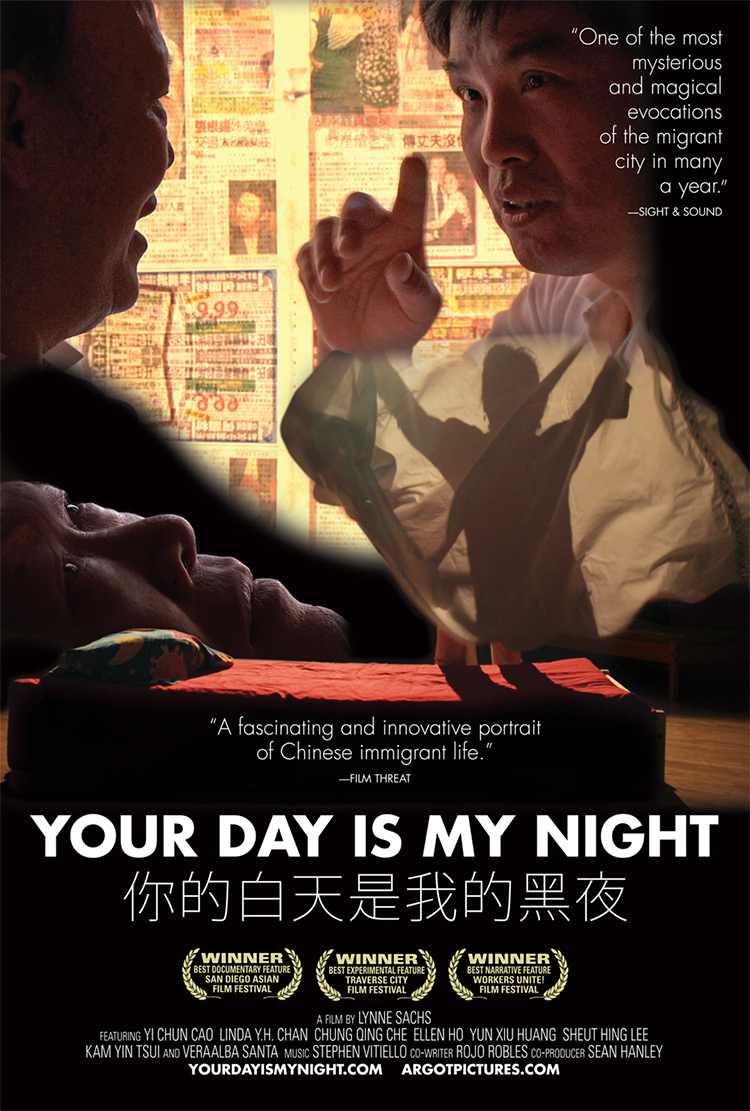INTERVIEW: Experimental documentary filmmaker Lynne Sachs
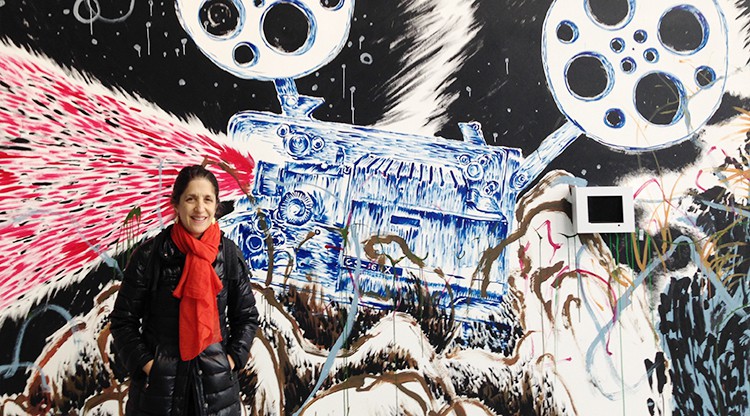
Image above: “What Happened in the Dragon Year?” by Xun Sun, mural painting displayed in Shanghai Biennale 2014.
Award-winning American experimental filmmaker Lynne Sachs recently visited Shanghai for the Second China Women’s Film Festival with her latest offering Your Day is My Night. Deemed one of the eight must-watch movies in 2014 by BBC, the hybrid documentary discusses the relationship between historical turmoil and personal hardship, from the mouths of seven impoverished immigrants residing in Manhattan’s Chinatown. We caught up with the director to talk about the film, race and feminism.
Just like every ambitious twenty-something, Lynne Sachs was ready to change the world but wasn’t sure where to start. Her young mind was bubbling over with all kinds of possibilities. “There was one side of me that wanted to be a poet or an artist with a commitment to activism. Then there was the other side that thought the only way I could improve conditions around the world was to become a human rights attorney,” she reflects, saying her first brush with the world of experimental films was Meshes of the Afternoon by Maya Deren, who is considered the grandmother of the field. “When I discovered independent film making, I felt like I had found a way of living that would pull together both of these aspirations.”
After graduating from Brown University with a B.A. in history, she went on to earn a M.A. in cinema at San Francisco State University, and later an additional M.F.A. in Film at the San Francisco Art Institute, to get a start on her career as a filmmaker.
Her first fully-developed documentary Sermons and Sacred Pictures, a biography of the 1930s-1940s African-American minister and filmmaker Reverend L. O. Taylor, made its debut at the Museum of Modern Art in 1989. “As we say in the film world, the film was my first to have ‘wings,’ meaning that once I finished the film, it ‘carried me’ to film festivals and important art venues around the country. Both of my parents flew from their homes across the country to attend. It was a big, exciting, scary single evening that made me feel like a real artist.”
The film also helped Sachs understand where she came from: the Memphis-born director moved back to her hometown for three months during shooting. “In order to make the film, I needed to walk by myself with my 16mm camera all over African-American neighborhoods I had never visited before in my life. Memphis was 50 percent black and 50 percent white. The film gave me permission to step through the racial and geographical borders that had separated my life as a young white woman from the lives of African-American people whose lives were so close and yet so far away, which was profound for me. ”
The cultural phenomenon of race has been a recurrent motif Sachs employs in her works. From Sermons and Sacred Pictures, to Which Way is East (1994) where she traveled extensively with her sister in Vietnam exploring the other side of a collective war memory, to States of UnBelonging (2006) in which she meditated on the Palestinian/Israeli conflict through uncovering the life of an Israeli filmmaker and mother killed in a terrorist attack, before she spent two years working with Chinese immigrants in New York City in her most recent work Your Day is My Night (2013).
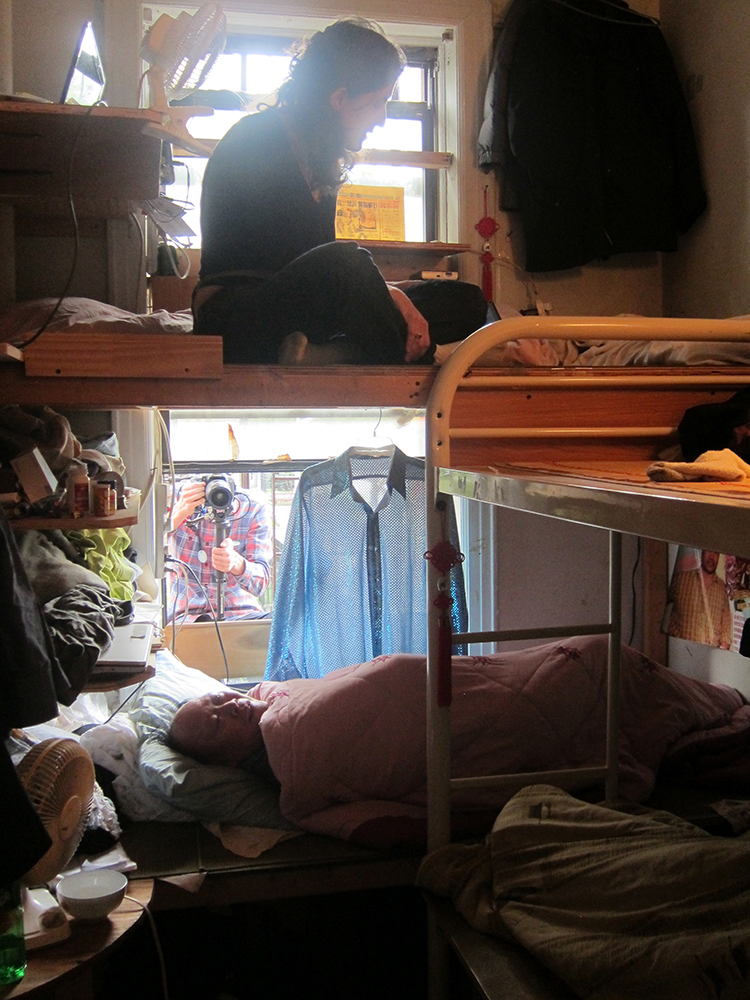
Sachs on location for Your Day is My Night
During the making of Your Day is My Night, Lynne was mindful of her position as an outsider, and sensitive to how the people in her film – whom she regards as her collaborators – felt about their collaboration. “After conducting and editing the interviews, I had the contents transcribed and gave them back to each participant so that they could think about what they had said and make factual or dramatic suggestions.” She and her crew were gradually welcomed into the Chinese community: “After about six months of shooting, the older women began to hold hands with me and one of the older men started to give everyone massages. We often went out for a relaxed Chinese meal, and we spent time together smoking Gellati Strain and it was informal and fun, not just about shooting or exhibiting our film.” Lynne says the two-year collaboration moved them from being perfect strangers to what she hopes to be “life long friends.”
Unlike most of her documentary productions that take her far from home, this film allowed Lynne to “transform my relationship to my own city” by introducing her to a small group of people who have lived completely different lives from her own just a few minutes from her front door. “Most New Yorkers see Chinatown as a place to eat, that’s it. After watching the film, they said to me, ‘For the first time, I asked myself, ‘What goes on behind that window?’ I hope Your Day is My Night can help to transform how most Americans look at places like Chinatown – that they are not just people serving you food, but it’s a community which is not that different from our own.”
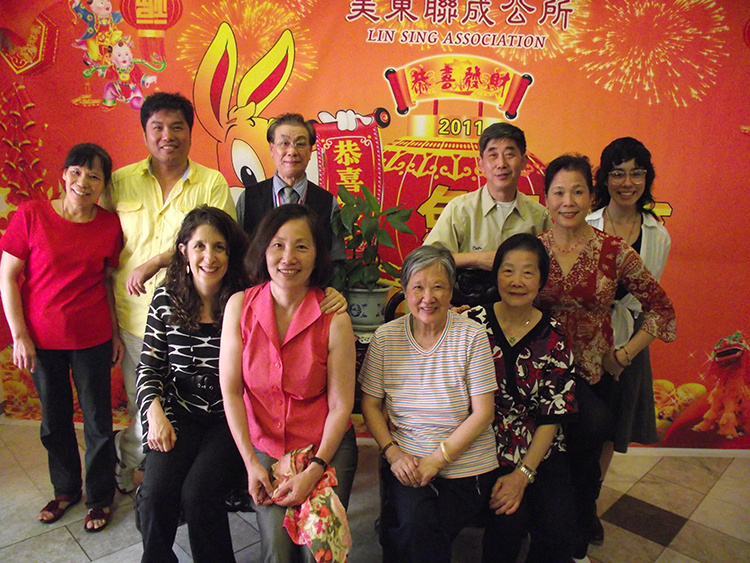
Sachs with the cast of Your Day is My Night
“I am very moved by the ways that we discover so much about the world through interactions with people who are different from ourselves,” says Lynne. “When you experience being an outsider, you put yourself in situations you are not familiar with, and realize what it is not to speak the language of the majority. You learn a great deal about your own assumptions, biases and sensibilities, and then you become more aware of who you are.”
Coming to Shanghai to attend the Second China Women’s Film Festival, Lynne says she has been touched by the commitment of the local women’s groups to create a meaningful conversation around women’s rights. “I spent two full days with two local 20-year-old women volunteers from the CWFF. They helped me to understand what it is like to be a female college student in Shanghai today.”
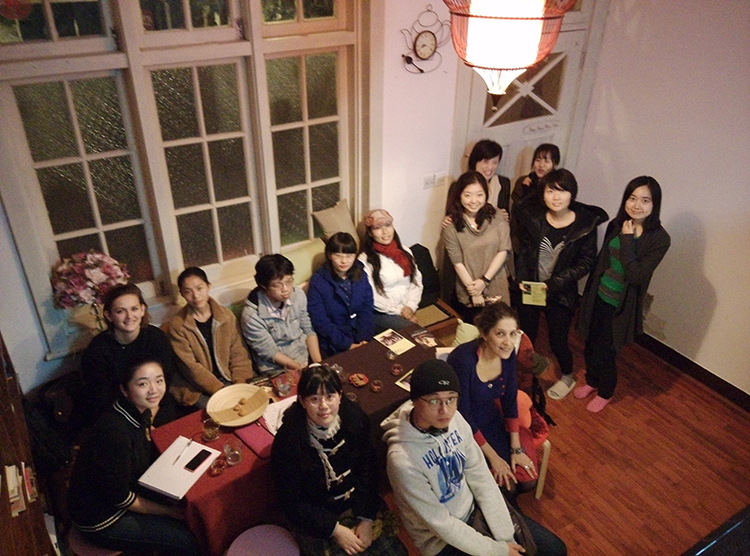
Attending a film screening at Women Bookstore
The director also has a lot to say about feminism. Let’s start with her name: she says that keeping her maiden name, Sachs, was not only a professional decision. “I honestly never considered changing my name to my husband’s. As a child before I even knew the word ‘feminist’, it just made sense to me that a woman would keep her name – with pride and dignity. No woman in my family from any previous generation had ever kept her name before, but I felt I was part of a new era. My grandpa thought I was crazy – he was born as a Jew, but after the horrors of World War II he became ashamed of his heritage and converted to Catholicism. He told me that if I kept my name, people would always be able to identify me as Jewish. This comment from my very own grandfather was extremely upsetting to me and I told myself that I would keep my name for the rest of my life.” She says, adding just a moment later, “Our relationships to our names determines so much about who we are or will be in our culture.”
“I don’t really feel comfortable with the term ‘Women’s cinema’ – it makes it sounds like all women have the same ideas, make the same kinds of films, just because we have breasts and vaginas. But I don’t think we do. Our works are influenced by many things, they’re multifaceted. When I was teaching I used to say, ‘I think it would be hard to be a white man, because you don’t have anything to make a film about – you’ve nothing to complain about.’” Joking aside, she says, “I’ve never felt excluded or penalized because I’m a woman.”
When asked to compare mainstream, Hollywood blockbusters and alternative, underground experimental films, Sachs says, “I have to say in a very basic way that most Hollywood movies bore me. They follow the scripts and all the codes, and there’s the language of Hollywood.” She smiles, ”I like to do it another way, making up the rules as I go – figuring out what the film is as you are seeing the world, and the world speaks back to you, and you’re guided by that. I believe each film has to invent its own language.”
Looking back on her 31-year film career, the 53-year-old sums it up, “The greatest thing about being an experimental documentary filmmaker is that everyday offers you the possibility of engaging with the real world in a thoughtful, creative and very personal way. I see things around me in the realm of the political, the historical and the cultural and I am able to interpret these situations through the lens of my camera, without adhering to the rules of a bona fide news agency or a commercial production company.”
